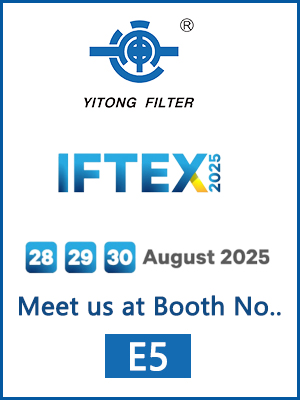 March 11, 2024
March 11, 2024
In today's world, where indoor air quality is increasingly recognized as vital to health and comfort, HVAC vent filters play a crucial role in maintaining clean and fresh air circulation within homes and commercial buildings. In this comprehensive guide, we delve into the significance of HVAC vent filters, their types, benefits, maintenance, and tips for optimal performance.
Understanding HVAC Vent Filters
HVAC vent filters, also known as air filters or furnace filters, are essential components of heating, ventilation, and air conditioning (HVAC) systems. Their primary function is to capture airborne particles such as dust, pollen, pet dander, mold spores, and other contaminants, preventing them from circulating throughout indoor spaces.
Types of HVAC Vent Filters
Fiberglass Filters: These are the most common and economical type of HVAC filters. They consist of layered fiberglass fibers that trap large particles but may allow smaller particles to pass through.
Pleated Filters: Pleated filters offer better filtration efficiency than fiberglass filters due to their increased surface area. They are constructed with pleats that provide more trapping capacity for airborne particles.
HEPA Filters: High-efficiency particulate air (HEPA) filters are renowned for their superior filtration capabilities. They can capture up to 99.97% of particles as small as 0.3 microns, including allergens, bacteria, and viruses.
Washable Filters: Washable filters are reusable and can be cleaned periodically instead of being replaced. While environmentally friendly, they may not offer the same level of filtration as disposable filters.
Activated Carbon Filters: These filters contain activated carbon, which can effectively absorb odors, volatile organic compounds (VOCs), and gases, enhancing indoor air quality.
Benefits of HVAC Vent Filters
Improved Indoor Air Quality: By trapping airborne contaminants, HVAC vent filters help reduce allergens and pollutants, creating a healthier indoor environment.
Extended HVAC System Lifespan: Filters prevent dirt and debris from accumulating on HVAC components, reducing wear and tear and prolonging the system's lifespan.
Energy Efficiency: Clean filters promote efficient airflow, reducing the workload on the HVAC system and lowering energy consumption.
Enhanced Comfort: Cleaner air contributes to greater comfort and well-being for occupants, especially those with respiratory conditions or allergies.
Maintenance and Replacement
Regular maintenance is essential to ensure the effectiveness of HVAC vent filters:
Check Filters Regularly: Inspect filters monthly and replace them every 1-3 months, depending on factors such as filter type, indoor air quality, and usage.
Follow Manufacturer's Recommendations: Adhere to the manufacturer's guidelines for filter replacement intervals and installation instructions.
Clean Air Ducts: Periodically clean air ducts to remove dust, mold, and debris, preventing them from contaminating the filters and reducing airflow.
Conclusion
HVAC vent filters are indispensable for maintaining clean indoor air and optimizing the performance of HVAC systems. By selecting the appropriate filter type, performing regular maintenance, and prioritizing indoor air quality, homeowners and building occupants can enjoy healthier, more comfortable living and working environments. Invest in HVAC vent filters today for a breath of fresh air tomorrow.

